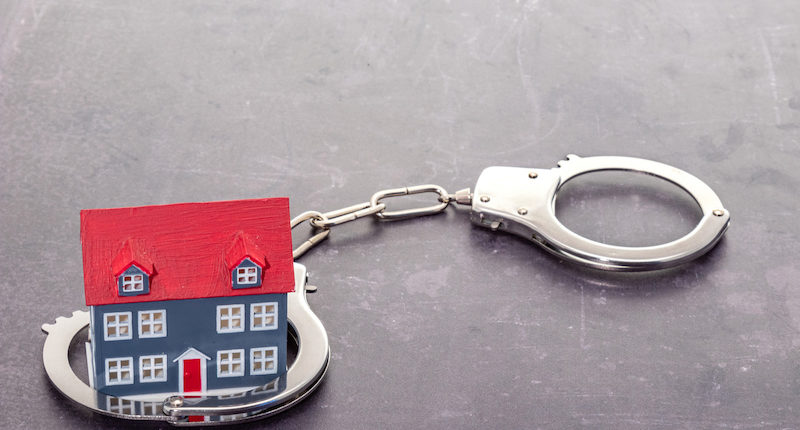Property Crime in Los Angeles: What You Need to Know

What happens when you’re involved with the dealings of property crime? Here is what you should know.
Read the details now.
Introduction
Nobody envisions living a life of crime. They don’t wake up in the morning and decide, I want to be a burglar when I grow up. It doesn’t work that way. Most often there are extenuating life circumstances that contribute little by little to a crime being committed. And most times, it is out of desperation – whether feeding or caring for their family, supporting a strong, uncontrollable addiction, or the like.
Regardless of the reason, engaging in a property crime is never the answer. The state of California takes these crimes seriously to restore a sense of security amongst the residents of Los Angeles and throughout the state.
So, what types of crimes are considered property crimes? What are the penalties?
Property Crime in Los Angeles
According to the 2021 Crime & Initiatives Report released by the Los Angeles Police Department this week, property crime is on the rise in the area. In fact, between 2020 and 2021, there was a 4.2% increase in citywide property crimes. According to the reports, this increase was due to elevated car break-ins and auto thefts.
While this increase does seem a bit concerning for the residents and business owners in the Los Angeles area, property crimes in the prior year, 2020, were at a historic low.
What is Considered a Property Crime?
Property crimes involve the destruction or theft of property that belongs to someone else. They do not involve threats or violence to commit the crime. This classification of crime involves both theft and non-theft crimes, including:
Burglary: Under California law, burglary is defined as entering a property with the intent of committing any kind of theft. Burglary can be charged whether or not the theft occurred. There are two types – first-degree burglary and second-degree burglary. First-degree burglary is entering an occupied dwelling, whether anyone is there at the time or not. This is a felony charge. Second-degree burglary is entering anything that isn’t a dwelling or residence. This could be a misdemeanor or a felony.
Larceny: Larceny is a legal (or fancy) term for theft. And there are two types – grand theft and petty theft. Both involve stolen property, but the charge will vary based on the value of the property stolen. For instance, in California, anything below $950 is considered petty theft while anything over is grand theft. Note that vehicles, animals, firearms, agricultural and farm products are usually always automatically classified as grand theft.
Trespassing: Trespassing occurs when you step on land or enter buildings that belong to someone else – with no consent or valid reason to be there. Generally, trespassing charges are not too serious. However, when trespassing occurs and there are clear and visible anti-trespassing signs, the charge may be a little more serious.
Vandalism: In California, vandalism can be a pretty serious charge that can even include jail time – and it includes destroying, defacing, or otherwise damaging someone else’s home or property. If this is done with malice and intent to harm, it is vandalism.
Arson: Many people don’t think of arson as a property crime, but because it involves damaged property due to fire, it can still fall under the classification. Though, it is also capable of being a fatal, violent crime. The courts in California take arson seriously and someone who intentionally sets fire to a building, property, or land will be charged accordingly.
Robbery: Robbery is not always considered a property crime as they often involve force or violence. This occurs when someone tries to take the property of someone by force, for example, by gunpoint.
Penalties for Property Crimes in Los Angeles
If you are being charged with a property crime in Los Angeles, you may be wondering what the penalty is. It can be a bit confusing to try to determine which ones are considered misdemeanors or felonies. And even more, confusion comes with knowing whether or not to expect a fine, prison time, or both. Having an attorney on your side as you go through the process can offer more clarification, as well as defenses to lessen the sentence, whatever it may be.
Below is a general idea of what the charges may be for some of these property crimes:
Burglary: First-degree burglary is a felony and can involve 2 to 6 years in state prison. Probation is not an option – it is mandatory that you serve prison time without parole. Second-degree burglary can be a felony or a misdemeanor. Misdemeanor charges can include jail time less than a year while felony charges can include 16 months to 3 years in state prison.
Grand Theft: The penalties are based on what was stolen. You may receive a prison sentence of up to 3 years and fines up to $5,000.00.
Petty Theft: The charges here can include jail time of fewer than 6 months and fines that do not exceed $1,000.00
Trespassing: Most trespassing cases are misdemeanors. The penalty can include jail time up to 6 months and a fine not to exceed $1,000.00.
Vandalism: The penalty for vandalism varies based on the amount of damage. It can include jail time of less than a year to a year and fines that range from $400.00 to $50,000.00.
Arson: When it comes to arson, there is often a significant amount of prison time based on the circumstances, even up to 9 years. Registering as a lifetime arsonist is also required.
Why You Need an Attorney for Property Crimes
Property crimes can be felonies or misdemeanors – and sometimes it is a fine line between the two. If you have been charged with a property crime, you need an attorney on your side to protect your rights. After all, you are presumed innocent until proven guilty. An attorney can review the details of your case and offer certain defenses or circumstances that can benefit you.
Don’t take the risk and do it alone – hire a criminal defense lawyer who has experience in property crimes. You’ll be glad you did.
Are you in search for a certified attorney to represent you?
Let us help you find one today!

